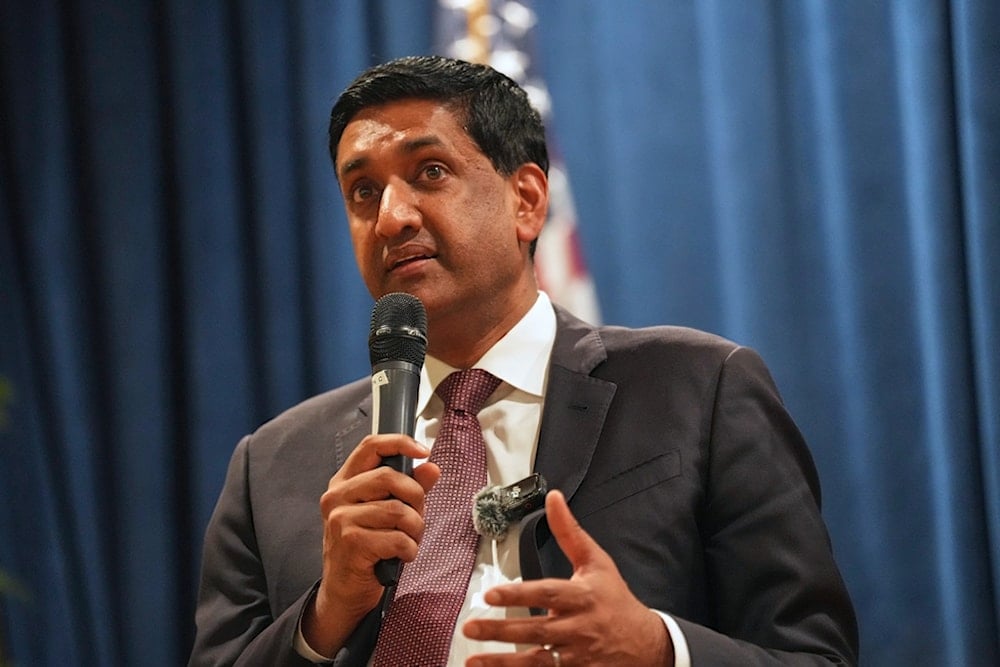Democrats urge Trump to recognize Palestine: Axios
A group of progressive US lawmakers is urging the Trump administration to recognize a Palestinian state amid escalating violence in Gaza.
-

Rep. Ro Khanna, D-Calif., speaks during an NAACP meeting, Sunday, July 20, 2025, in Columbia, S.C. (AP Photo/Meg Kinnard)
Axios on Monday reported that a group of Democratic lawmakers is urging President Donald Trump's administration to formally recognize a Palestinian state, citing the worsening crisis in Gaza and recent international momentum behind Palestinian self-determination.
The initiative is being led by Representative Ro Khanna (D-Calif.), with 13 House Democrats having signed a letter addressed to both President Trump and Secretary of State Marco Rubio. The message, obtained by Axios, appeals for the US to follow the lead of countries such as France, the UK, Canada, Norway, and others who recently issued a joint statement demanding an end to "Israel's" assault on Gaza and backing Palestinian statehood.
"This tragic moment has highlighted for the world the long overdue need to recognize Palestinian self-determination," the letter states. "We encourage the governments of other countries that have yet to recognize Palestinian statehood, including the United States, to do so as well."
Among those who signed are Representatives Chellie Pingree (D-Maine), Nydia Velázquez (D-NY), and Jim McGovern (D-Mass.), reflecting a cross-section of progressive voices within the Democratic caucus.
Representative Al Green (D-Texas), another signatory, told Axios that he plans to introduce a resolution in the coming weeks affirming Palestine's right to exist. "This is about justice, and it is about peace," Green said, noting the need for moral clarity amid an increasingly dire humanitarian situation in Gaza.
Beyond Two States
The letter situates itself within a broader Democratic shift, particularly among progressives. While past administrations have avoided unilateral recognition of Palestine, the current signatories argue that the evolving international context, including official pledges by longstanding allies, makes a strong case for a diplomatic recalibration.
Critics however warn that mere recognition may fall short of delivering genuine justice. Many Palestinian advocates argue that the two-state solution enshrines structural inequality by legitimizing a colonial partition that leaves millions of Palestinian refugees without the right to return and entrenches "Israel" as a state built on ethno-national supremacy.
They point to the expansion of illegal settlements, the fragmentation of Palestinian territories, and the permanent blockade of Gaza as evidence that a viable, sovereign Palestinian state is no longer possible within the two-state model.
The late Iranian Foreign Minister, martyr Hossein Amir-Abdollahian, stated in December 2023 that the two-state solution would not help the Palestinian cause, noting that all of Palestine remains under Zionist occupation. He argued that justice can only be achieved through the establishment of a single democratic state for all its inhabitants, in which Jews may live as equal citizens or emigrate elsewhere.
Read more: Merz under fire for rejecting West's joint Gaza ceasefire call

 3 Min Read
3 Min Read










